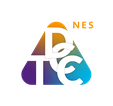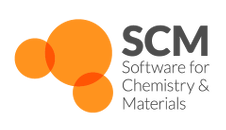Register before April 10th to make use of the early bird discount!
ICTAC-20, Delft, The Netherlands
Welcome to the 20th International Conference on Theoretical Aspects of Catalysis (ICTAC-20), to be held in the historic city of Delft, The Netherlands! Since its inception in 1986, ICTAC has been the premier platform for scientists worldwide to share and discuss the latest developments in the theory and modeling of catalytic phenomena. Over the decades, our focus has naturally evolved—originally centered on establishing a detailed, molecular-level understanding of the catalytic sites, reactivity and mechanism, it now embraces the far-reaching complexity of reaction networks, the importance of cooperativity, dynamic ensembles and entropy.
Today, high-performance computing and automated computational tools have made quantum-chemical calculations and kinetic simulations a routine part of catalyst design. More recently, the integration of machine learning (ML) and artificial intelligence (AI) has begun to unlock hidden patterns and design principles that were once inaccessible by purely human-led analysis. In parallel, advanced experimental methods continue to generate high-quality data at unprecedented speed and precision, empowering theorists to better refine models, test hypotheses, and uncover mechanistic details. Together, these advances foster a deeper understanding of catalysis under realistic conditions—critical for addressing grand challenges such as green energy production, sustainable chemical manufacturing, and waste reduction.
ICTAC-20 will showcase contributions spanning all aspects of catalysis—from heterogeneous to homogeneous, electrocatalysis to photocatalysis, and increasingly, enzyme-based and bio-inspired approaches—inviting fruitful dialogue between theoreticians and experimentalists. We look forward to lively exchanges on how novel computational methods, data science, and AI-driven strategies can synergize with innovative experimental techniques to guide the design of catalysts and processes that support our shared vision for a sustainable future. We hope you will join us in Delft to collectively advance the frontiers of catalysis research and celebrate this exciting new era of theory and experiment in harmony.
- Evgeny Pidko
- Kevin Rossi
- Guanna Li
- Ivo Filot










